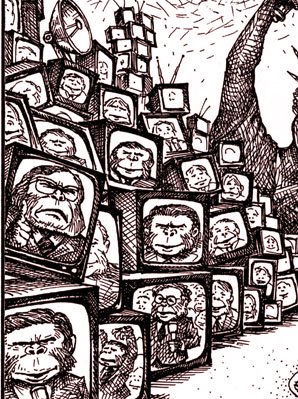
Nearly everything that was expected to happen in the 2016 presidential race hasn't, and many things that weren't expected have. The rise of Donald Trump—even that he would run—was not predicted. Nor was the fall of Scott Walker or the weakness of Jeb Bush's candidacy. Polls have proved to be unreliable indicators of where the Republican and Democratic campaigns are headed. Hillary Clinton's coronation as Democratic nominee, we were told, was a sure thing. Now she's sliding toward underdog status.
Politics isn't science. Polls measure where things stand at a moment in time. But politics is dynamic. In the pre-primary year—that is, now—voters are fickle. My one rule of politics is that the future is never a straight-line projection of the present. And it hasn't been this year.
The biggest change is the revolt of angry conservatives, who make up a large chunk of the GOP base. After Republicans captured the Senate in the 2014 election, and having controlled the House since 2010, they expected to dominate Washington. Instead, President Obama has.
"You vote Republican and nothing happens," says consultant Jeffrey Bell. "It's driving the base crazy."
When Trump began attacking illegal immigrants and establishment Republicans, the base rallied to his side. Practically no one expected this. I didn't. When Trump said John McCain wasn't a hero, the conventional wisdom was that his campaign would crash. It didn't. Then it was predicted he would soon fade. He hasn't. On the contrary, Trump continues to draw huge, enthusiastic crowds and was the central figure in the two nationally televised GOP debates.
Trump specializes in acting in ways usually thought of as unpresidential. He targets his Republican foes with crude insults. Almost everything he says is politically incorrect. But this style has worked, at least for him. Who knew? The angry right shows no sign of abandoning him.
Trump may not have played a direct role in the decisions of Scott Walker and Rick Perry to drop out of the race. But it's hard to imagine they would have quit if he were not gobbling up most of the media attention. Perry suffered from failing to qualify for the top-tier debates. Why? Trump kept him from getting the conservative backing he needed. GOP voters viewed Perry favorably by 2-to-1, but that didn't translate into actual support, says Jeff Miller, Perry's campaign manager.
"Trump hurt us," says Miller. Perry "needed to get in the first debate to show he's electable." Absent that, his fundraising dried up.
A widely accepted notion has been that super-PACs would take up the slack for a candidate with money woes. Now we know that's a myth. Walker's main super-PAC had over $20 million in the bank when he quit. It turns out operating funds raised by the candidate are as important as ever in presidential races. Perry's super-PAC had millions on hand, and a donor has asked for a $5 million refund, according to Politico.
One problem with political reporting and prognosticating is they're often backward looking. It's assumed what happened in the past will happen again. Take governors. Unlike senators, who mainly talk, or candidates with no record in elected office, governors have governed. They've been chief executives. This gives them a tangible qualification to be president, one voters have acknowledged by electing governors to the White House in seven out of the past nine elections.
This year is different. The preference for governors—a perfectly rational preference—has died. Two governors, both with impressive records, are gone, and three others are struggling to stay alive. Jeb Bush, while underperforming, appears to be viable, Chris Christie and Mike Huckabee barely so. Bobby Jindal hasn't clicked.
The biggest contradiction of expectations among Democrats is Hillary Clinton. Look back at all those stories six months to a year ago about the certainty of her being the nominee and you'll wonder why in the world anyone believed that. They were based on polls and her strong, though losing, campaign in 2008. But back when those stories were written she had a single, weak opponent, Martin O'Malley. Others were likely to join the race.
It's true the email scandal couldn't have been predicted. Nor could her dreadful performance as a candidate. She has become peevish, media-phobic, and, in Yuval Levin's description, "authentically inauthentic." That her and her husband's greed in demanding hundreds of thousands of dollars for speeches would emerge as an issue wasn't clear either.
But a coronation? Was she so loved that no conceivable candidate had a chance against her? That's not how primaries work. If a frontrunner lacks a credible challenger, the media will create one, as they did with Gary Hart in 1984. Also, the Democratic party has moved to the left since 2008, and Clinton had to adjust to that. She has, clumsily, but not before Senator Bernie Sanders entered the race and captured much of the Democratic left.
We're four months away from the first contest in Iowa, plenty of time for Trump to wear out his welcome. The other intruders from outside politics—Ben Carson and Carly Fiorina—may vanish. Clinton could, theoretically, emerge in a sympathetic light. But if any of that happens, I'll be surprised.
Comment by clicking here.
Fred Barnes is Executive Editor at the Weekly Standard.



 Contact The Editor
Contact The Editor
 Articles By This Author
Articles By This Author